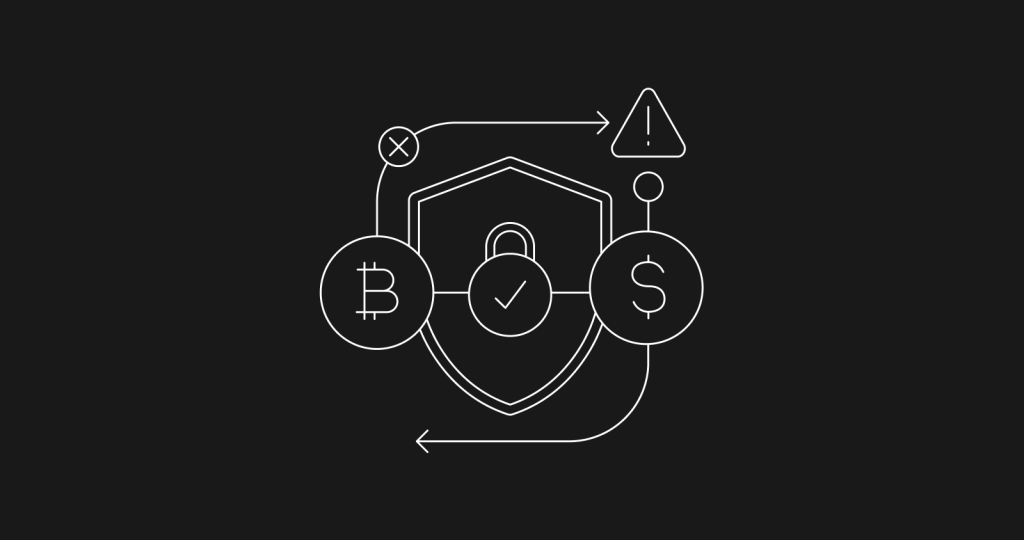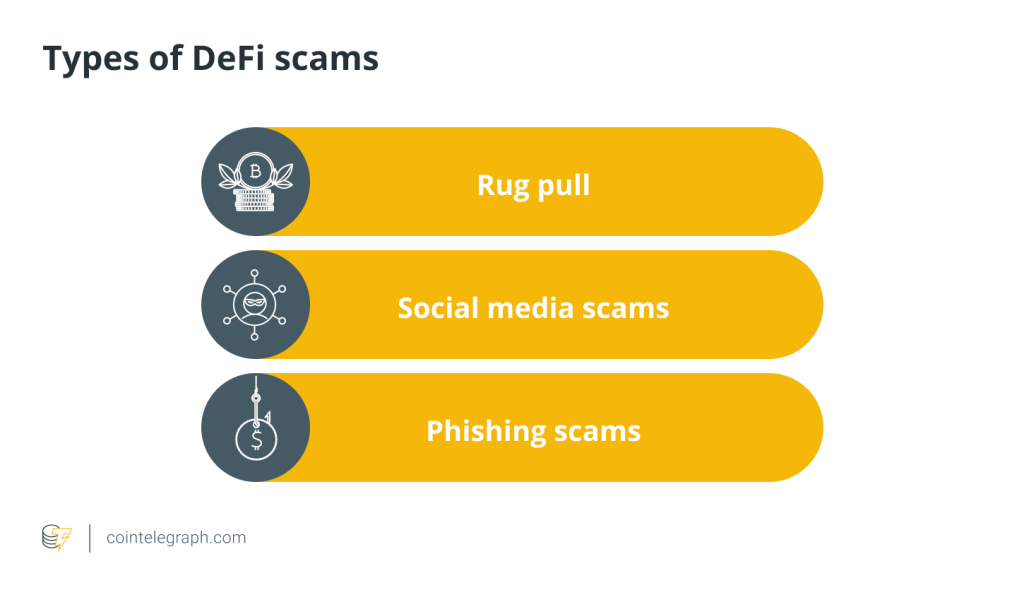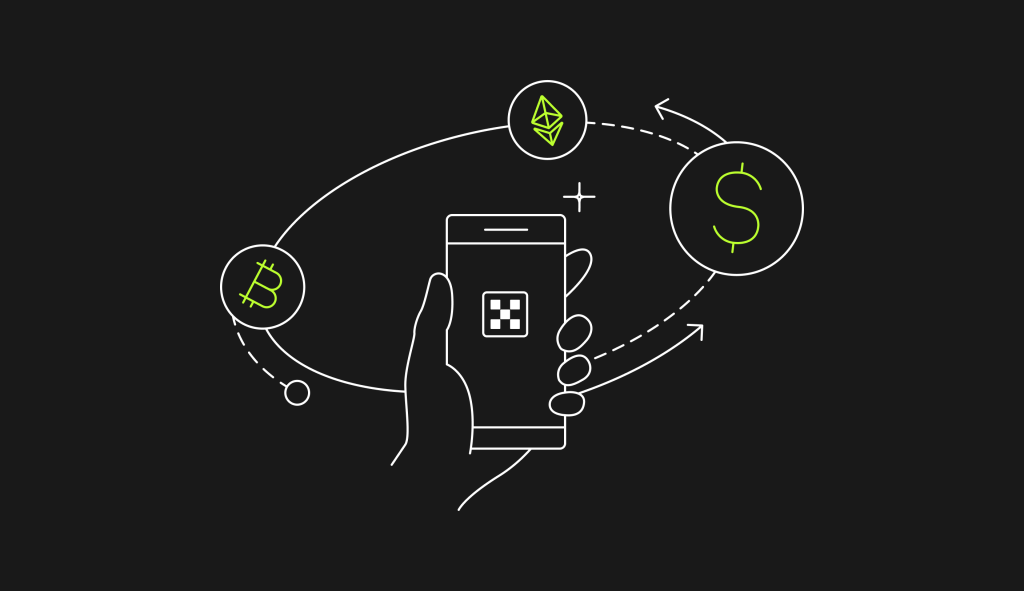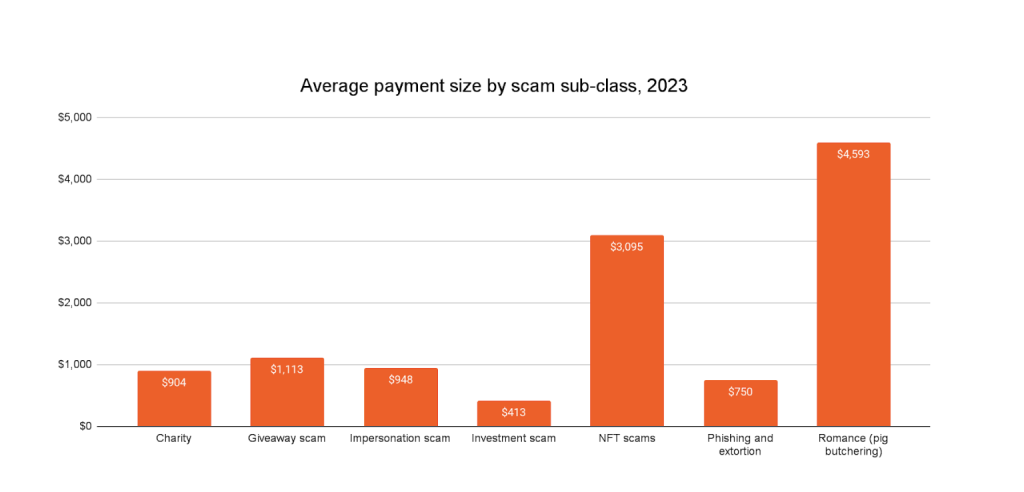Safer crypto trading: how to spot scams


Scams have unfortunately emerged as a prominent and persistent challenge in the crypto space as bad actors lurk in the shadows. Backed by advanced technology and tools, these scams have become increasingly sophisticated and harder to identify.
So, how can you safeguard your assets and shield yourself from potential threats? Let's explore the various types of scams encountered in crypto and learn how to spot them before it's too late.
TL;DR
-
Know the red flags: learn about common scams and warning signs that come with phishing attempts and other fraudulent activities.
-
Strengthen your defenses: practice good cybersecurity habits and keep important information — such as your crypto wallet seed phrase — as secure as possible.
-
Do your homework: always do your own research before trading new crypto tokens, NFTs, or other digital assets.
What kinds of crypto scams are out there?
Phishing scams
-
Seed-phrase scams and fake websites: like deceptive doppelgangers, some scammers create fake websites that mimic popular platforms or applications. Always double-check URLs before clicking on them, and never ever give a website your seed phrase.
-
Email and social media phishing: beware of scammers posing as well-known figures like Elon Musk on Twitter, offering "too good to be true" deals. If it smells fishy, it probably is. These scams often appear in your mentions, social or Discord DMs, email inboxes, and comment sections. Just like the TrustWallet scam, if someone from a support team reaches out to you and asks for a seed phrase, they're probably trying to scam you. Remember: never give out any personal information or passwords and seed phrases.
-
Fraudulent mobile apps: scammers can disguise themselves as popular wallet apps like Trezor, waiting to snatch your hard-earned crypto. Always download apps from official sources and check reviews to make sure the app is legitimate. When restoring a crypto wallet, you will have to input your seed phrase, so be sure to double-check whenever you download a new app like SPACEX Wallet.
-
Malware hidden in downloads: in August 2023, CoinsPaid, a Ukrainian-based crypto payment processor, was hacked for $37 million. An employee was tricked into downloading a test for a job interview, which was fake. The employee installed malware, and the malware breached the CoinsPaid internal system. The bad actors then had access to millions of crypto funds.
Crypto project scams
-
Imitation/fake projects: some scams involve projects imitating well-known cryptocurrencies, like the Bitcoin Gold scam. They may appear genuine, but their sole purpose is to deceive you and capture your funds. Always verify the project's authenticity before committing your funds.
-
Projects with no utility or unrealistic promises: remember the notorious BitConnect? Projects like these make unrealistic promises and often lack a solid use case. Be cautious of schemes that sound too good to be true.
-
Pump-and-dump schemes: groups like the 'Big Pump Signal' Telegram group artificially inflate a coin's value, only to dump it later, leaving unsuspecting traders in the dust. Steer clear of such schemes and avoid the hype. And remember: always do your own research.
Exchange and wallet scams
-
Fraudulent exchanges: unscrupulous individuals might set up fake exchanges to lure users. Stick to well-known, reputable exchanges that transparently communicate their Proof of Reserves, such as SPACEX, to protect your assets.
-
Fake wallet apps and services: MyBigCoin is one example of a fake service with empty promises designed to steal user funds. Always research wallet providers and look for trustworthy recommendations. If you're looking for a new self-custody wallet, we recommend trying out the SPACEX Wallet.
-
Initial Coin Offering (ICO) scams: ICOs can be an exciting and rewarding opportunity, as with any new project in crypto, but they also carry big risks. Be mindful of the pitfalls associated with them and make sure you do your due diligence on what these ICOs are promising. Scams like PlexCoin and Centra Tech are prime examples of ICOs gone wrong. Look for transparent information about the team, realistic goals, and a well-written white paper.
Best practice to avoid getting scammed
Secure or self-custody your digital assets
-
Use reputable wallets and exchanges: trustlessness is crucial in the crypto world. Stick to well-established wallets and exchanges with strong security measures in place that transparently communicate their Proof of Reserves or open-source their security models.
-
Enable two-factor authentication: add an extra layer of security to your accounts (including everything from social to email) by enabling two-factor authentication (2FA). It's a small step that can make a massive difference.
Research projects thoroughly
-
Check team credentials and project history: investigate the background of the project's team members and their past accomplishments. A solid team is the backbone of any successful project.
-
Examine the project's white paper: a white paper is like a project's blueprint. Make sure it's well-written, comprehensive, and outlines a clear vision and plan. If it doesn't make sense or sounds too good to be true, it might be a scam.
-
Analyze tokenomics and use cases: dive deep into the project's tokenomics and use case. A strong project should have a practical purpose and a clear plan for token distribution. If a token distribution is extremely concentrated among founding members or doesn't have a clear lockup plan, this may be a sign of a pump-and-dump scheme.
Be cautious with communication
-
Verify the source of emails and messages: scammers often pose as official representatives from big companies, such as the CEO of SPACEX. Verify the sender's authenticity before engaging or sharing any sensitive information, and always reach out to the customer support team if you receive any phishing attempts.
-
Avoid sharing sensitive information online: keep your private keys and seed phrases to yourself, and try and store your passwords offline. Treat them like your most valuable secrets.
Monitor your assets
-
Keep track of your assets: regularly review your portfolio and stay informed about the projects you're involved in. Better yet, take your crypto off exchanges and into a self-custody wallet for higher security.
-
Stay informed about the crypto market: the crypto landscape evolves rapidly. Keep yourself updated on the latest news and developments to make informed decisions. We recommend following reputable news sources and leading social media accounts in the crypto space.
While the crypto world is full of opportunities, plenty of threats exist. By staying vigilant, practicing good cybersecurity habits, and doing thorough research, you'll be better equipped to navigate this exciting landscape safely. Remember, it's essential to take responsibility for your assets and always stay on guard.






… [Trackback]
[…] Find More on that Topic: x.superex.com/academys/trading/1683/ […]
… [Trackback]
[…] Find More to that Topic: x.superex.com/academys/trading/1683/ […]
… [Trackback]
[…] Information on that Topic: x.superex.com/academys/trading/1683/ […]
… [Trackback]
[…] Information to that Topic: x.superex.com/academys/trading/1683/ […]
… [Trackback]
[…] Find More here on that Topic: x.superex.com/academys/trading/1683/ […]
… [Trackback]
[…] Information to that Topic: x.superex.com/academys/trading/1683/ […]
… [Trackback]
[…] Find More to that Topic: x.superex.com/academys/trading/1683/ […]
… [Trackback]
[…] Read More on to that Topic: x.superex.com/academys/trading/1683/ […]
… [Trackback]
[…] Find More on on that Topic: x.superex.com/academys/trading/1683/ […]
… [Trackback]
[…] Info to that Topic: x.superex.com/academys/trading/1683/ […]
… [Trackback]
[…] Here you can find 20006 more Information on that Topic: x.superex.com/academys/trading/1683/ […]
… [Trackback]
[…] Read More here on that Topic: x.superex.com/academys/trading/1683/ […]
… [Trackback]
[…] Find More on that Topic: x.superex.com/academys/trading/1683/ […]
… [Trackback]
[…] Find More Info here on that Topic: x.superex.com/academys/trading/1683/ […]
… [Trackback]
[…] Information on that Topic: x.superex.com/academys/trading/1683/ […]
… [Trackback]
[…] Find More to that Topic: x.superex.com/academys/trading/1683/ […]
… [Trackback]
[…] Information to that Topic: x.superex.com/academys/trading/1683/ […]
… [Trackback]
[…] Find More on that Topic: x.superex.com/academys/trading/1683/ […]
… [Trackback]
[…] Here you will find 95523 additional Information to that Topic: x.superex.com/academys/trading/1683/ […]
… [Trackback]
[…] Read More Info here on that Topic: x.superex.com/academys/trading/1683/ […]
… [Trackback]
[…] Read More on that Topic: x.superex.com/academys/trading/1683/ […]
… [Trackback]
[…] Information on that Topic: x.superex.com/academys/trading/1683/ […]
… [Trackback]
[…] Find More Info here on that Topic: x.superex.com/academys/trading/1683/ […]
… [Trackback]
[…] There you can find 41011 more Info to that Topic: x.superex.com/academys/trading/1683/ […]
… [Trackback]
[…] Read More Info here on that Topic: x.superex.com/academys/trading/1683/ […]
… [Trackback]
[…] Find More on that Topic: x.superex.com/academys/trading/1683/ […]
… [Trackback]
[…] Find More Information here on that Topic: x.superex.com/academys/trading/1683/ […]
… [Trackback]
[…] Read More Info here on that Topic: x.superex.com/academys/trading/1683/ […]
… [Trackback]
[…] Information on that Topic: x.superex.com/academys/trading/1683/ […]